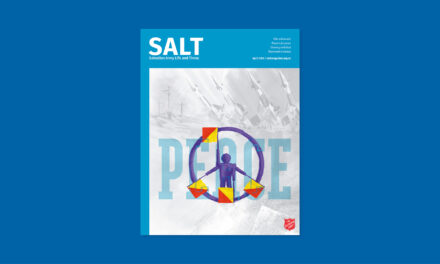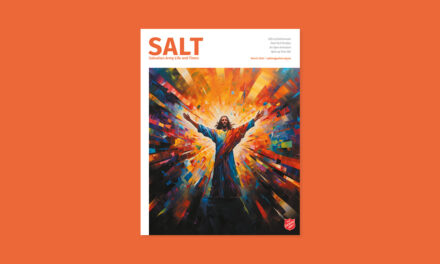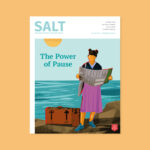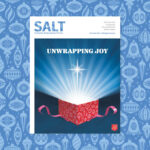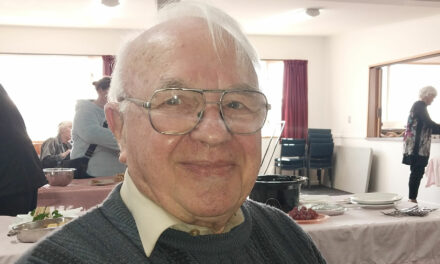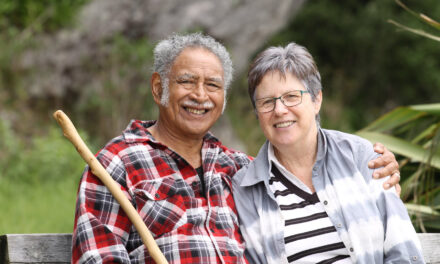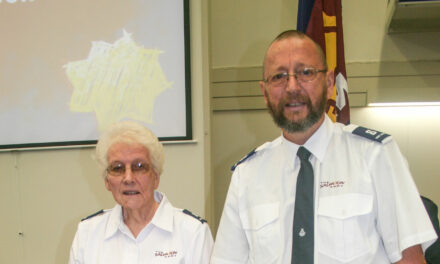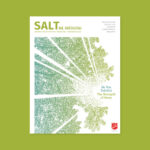
The Limitless Love of God
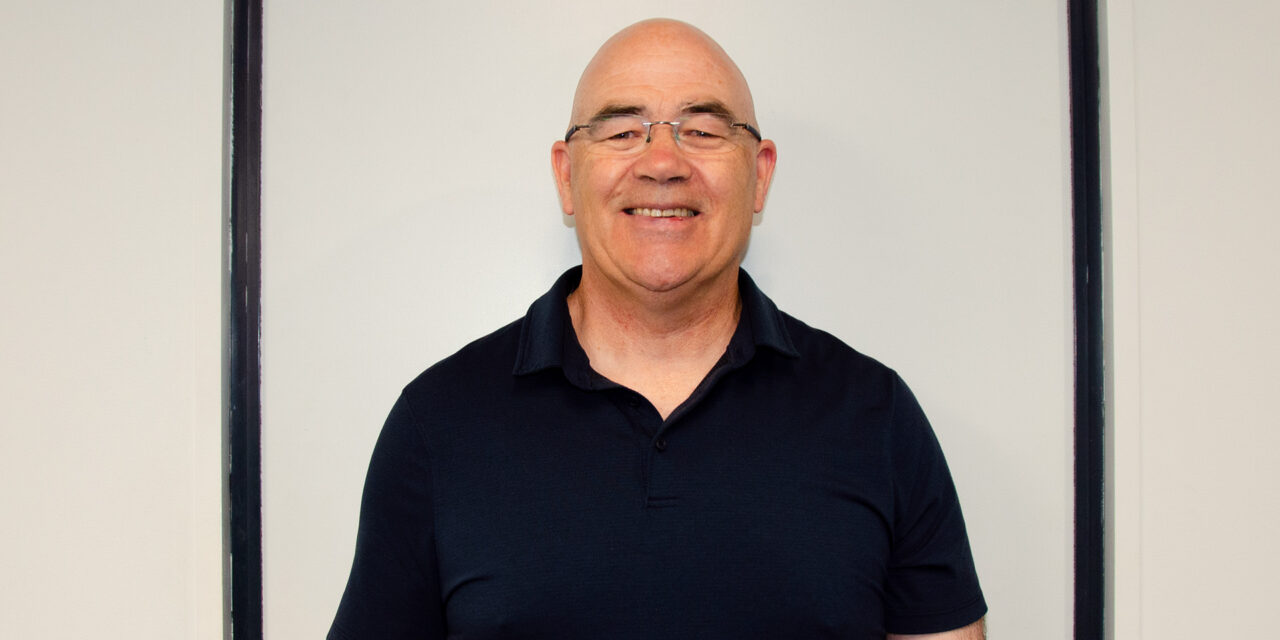
As a young man Richard Kerr-Bell read Mother Teresa’s biography and fell in love with the God she served. A formative experience working with the poorest of the poor in Los Angeles, opened Richard’s eyes and heart to the expansive, limitless love God has for all people. Richard is The Salvation Army’s tumu whakarae (operations manager) for te Rūnanga nationally, and he believes this new role is the culmination of everything he has learnt so far.
My deepest connection is to the Hokianga. While I whakapapa to Ngā Puhi, Te Rarawa, Te Aupouri and Ngāti Kuri, as we say in the north if you are related to Rāhiri (founding ancestor of Ngā Puhi), you are related to everyone!
My grandfather came to New Zealand from Scotland when he was 21. He fell in love with a Māori woman, so his family disowned him. But they married anyway and started a family. Sadly, she died, so her cousin was sent to help with the kids. In time she became my grandfather’s second wife, but she also died. Another cousin—my grandmother—was sent to help, and the couple had 12 more children (there were 26 in total) with my dad being the second eldest of that third family.
The marae I feel the strongest connection to is Aotea Marae, Hokianga, where my grandmother planted 13 different species of flax. Every Christmas we would go and stay with my grandmother and go fishing around the harbour and listen to all the stories she had to share. The whare tūpuna (meeting house) is Te Kaiwaha and the hapū (tribe) is Ngāti Whārara—one of three hapu who have the responsibility of carrying the story of the harbour.
Formative experiences
When I was about 18 years old, I travelled around with my uncle (Edward Buck Dawson) so I could learn about my whakapapa (genealogy). My grandmother was unwell and it seemed increasingly likely she wouldn’t live much longer. I realised there would be no one who could speak on behalf of my family at her tangi (funeral), so I went to Hoani Waititi Marae and did a nine-month full immersion course. When my grandmother died, my uncle called me up to speak. That was such a formative experience for me and an important part of my story.
I was in the Air Force for a few years, but coming from a practising Catholic family of faith, I left after reading Mother Teresa’s biography. I was deeply moved by her absolute faith in God and her limitless love for the most vulnerable. In downtown LA, Mother Teresa had a group of brothers who cared for people who had been left on the street for various reasons. I wrote and asked if I could come and join in the work, and they said yes.
Living in LA with the brothers was an incredible experience. We’d get up to pray at 5.30am, before visiting people in the ghettos and homeless shelters. We’d visit elderly people that no one cared about, do their washing and tend to their sores. LA is always warm, so when we visited people who hadn’t washed in a while, where there was rubbish piled up and the stench of urine was oppressive, it was certainly challenging. But my time caring for the poor anchored in my soul a faith that trusted absolutely in the limitless love of God. Once you have that, irrespective of what comes next, you can’t not believe in God’s love, because you can’t undo that experience. It was during my time in LA that God taught me I could serve anyone, anywhere, without fear. (I also got to meet Mother Teresa, and she was a rock star!)
Confronting racism
When I returned to New Zealand, I got a job at the Pakuranga Shell Station which was the biggest in the country at the time. There was also a flood of Asian immigration to East Auckland, so I saw and experienced racism up close and personal. Little did I know then, but confronting racism would become a clear call on my life.
Inspired by my experience in LA and the faith of a beloved mentor, I trained to become a priest. However, when an Easter liturgy with two small parts in te reo Māori resulted in some students purposefully raising their voices and speaking English over the Māori during the service, I couldn’t stay quiet. For three days afterwards I didn’t participate in mass but sat outside to show the division and separation and lack of belonging and inclusion that racism causes. I was promptly informed that I wasn’t suitable for the priesthood. So I finished my theology degree through Otago University and trained to be a teacher. I worked at various schools around Dunedin teaching te reo Māori, including one that had me based in the foreign languages department! If students were ‘bad’ in class, they were sent to do Māori—it was tough, and I realised quickly that I couldn’t help much because there weren’t enough hours in the day. I thought I better do something about that, so I went and did a Master of Counselling.
God faithfully opened doors for me, and at one point I was the only Māori counsellor in Dunedin. Sadly, I had no shortage of clients. With a view to lifting Māori and disrupting racism whenever I could, I also worked in chaplaincy, social work and religious education. I did research and lectured at Otago Polytechnic and Otago University. I also had the privilege of writing curriculum and developing assessment processes that incorporate a Māori worldview and make education more accessible for Māori students. This is some of the work I am proud of.
Most recently I served as the kaihautū wairua (spiritual director) for Ngā Whaea Atawhai o Aotearoa (Sisters of Mercy New Zealand); so I come to this new role with Te Ope Whakaora (The Salvation Army) with a lot of real-world experience and passion. I know I have a contribution to make and believe anything is possible for Te Ope Whakaora—it all comes down to the courage of our faith. What I mean is, I can read and learn everything about the rubrics of faith, but if I can’t show mercy to someone who is different from me, or take the time to listen to their story, then how can I hear the voice of God or discern what the Spirit is saying?
The potential exists in Te Ope Whakaora to make a massive difference not just for Māori but for all, and the only limitation is the courage of our faith. When we trust God and lean into his limitlessness, we discover the expansiveness of God’s love. Our faith needs to experience that expansive love so we don’t lose our courage. And this is my hope and prayer for Te Ope Whakaora in these days…
Richard is married to Katrina, and they have two children—both young adults studying in Ōtepōti (Dunedin).

